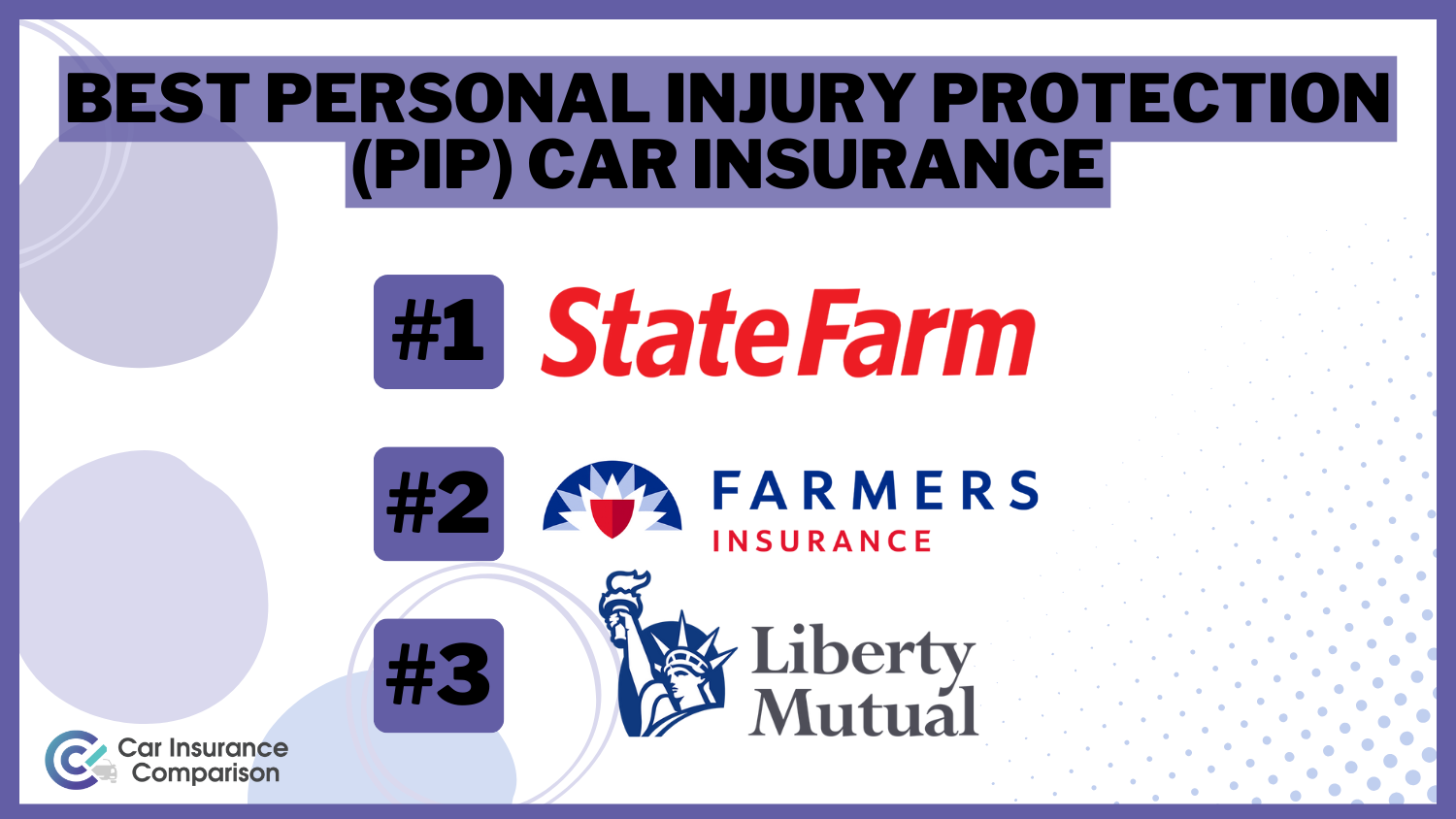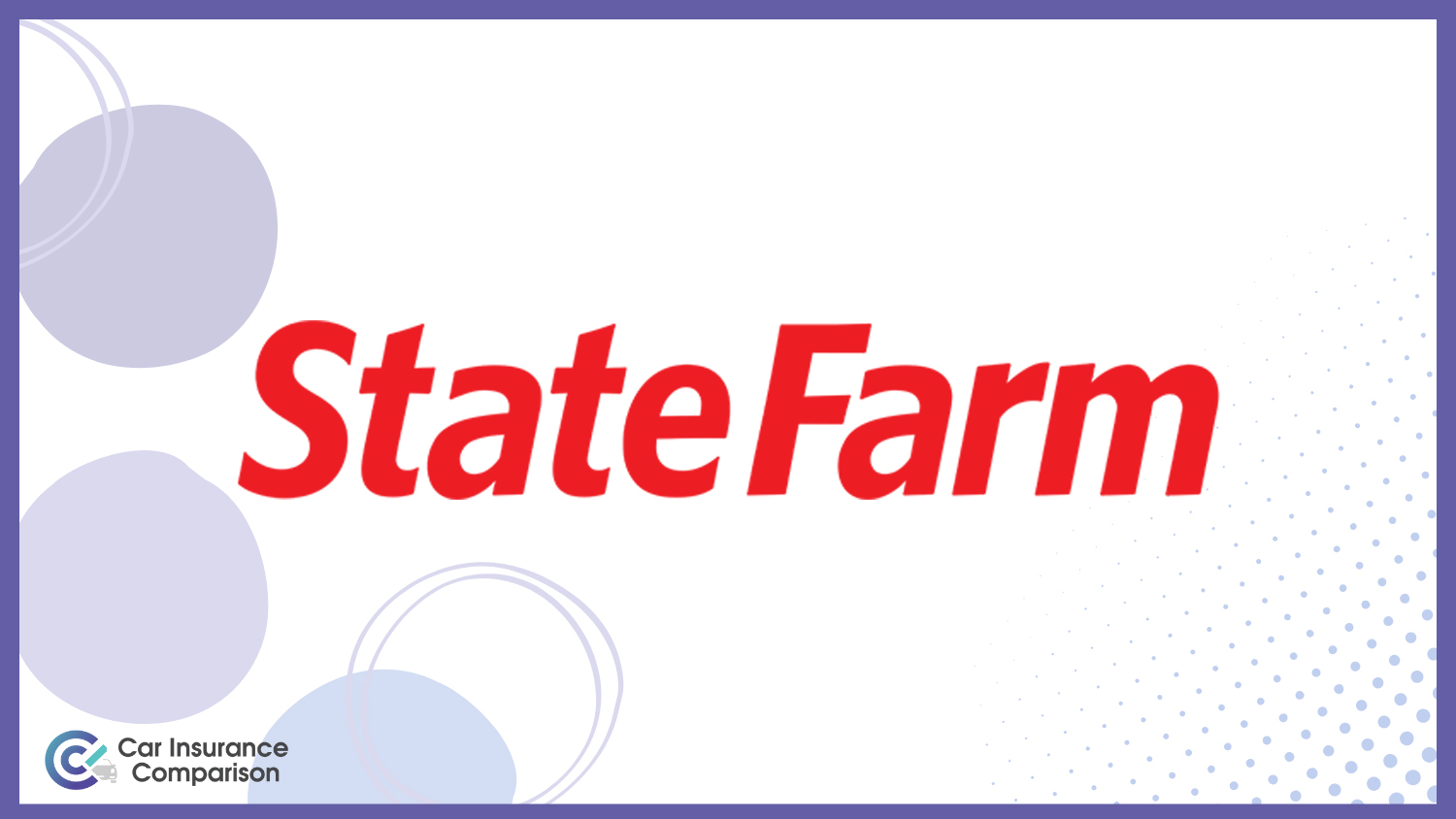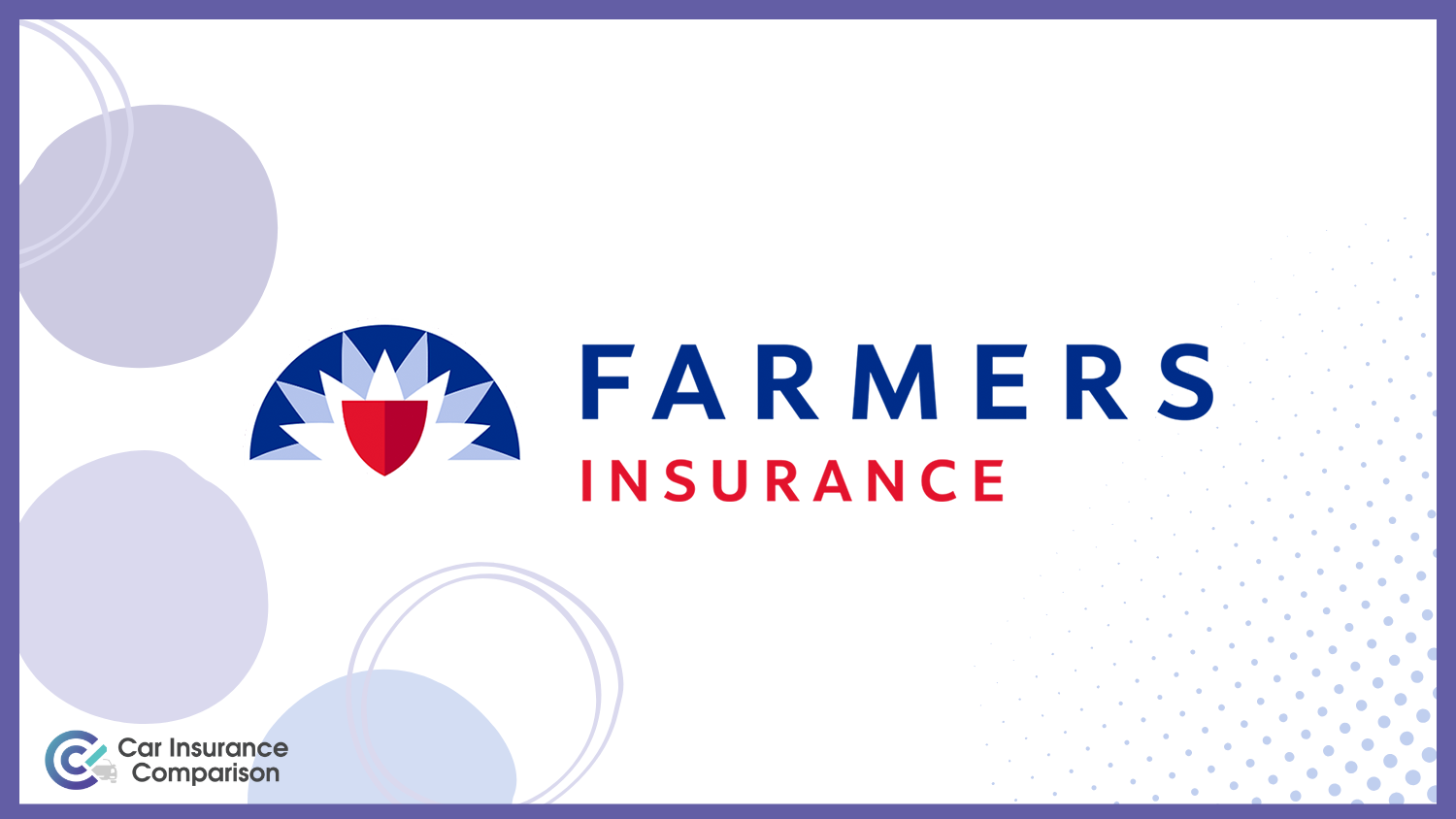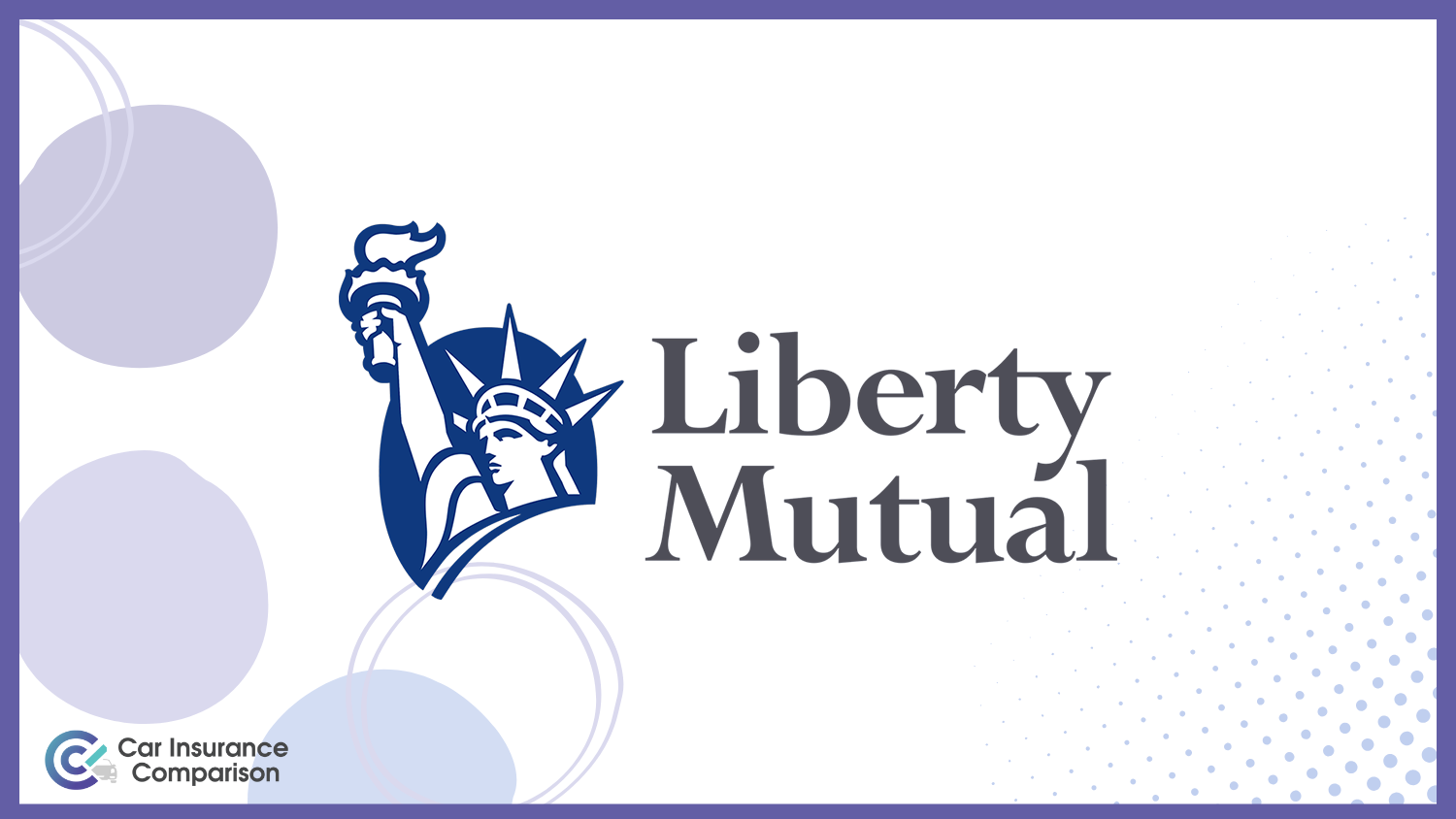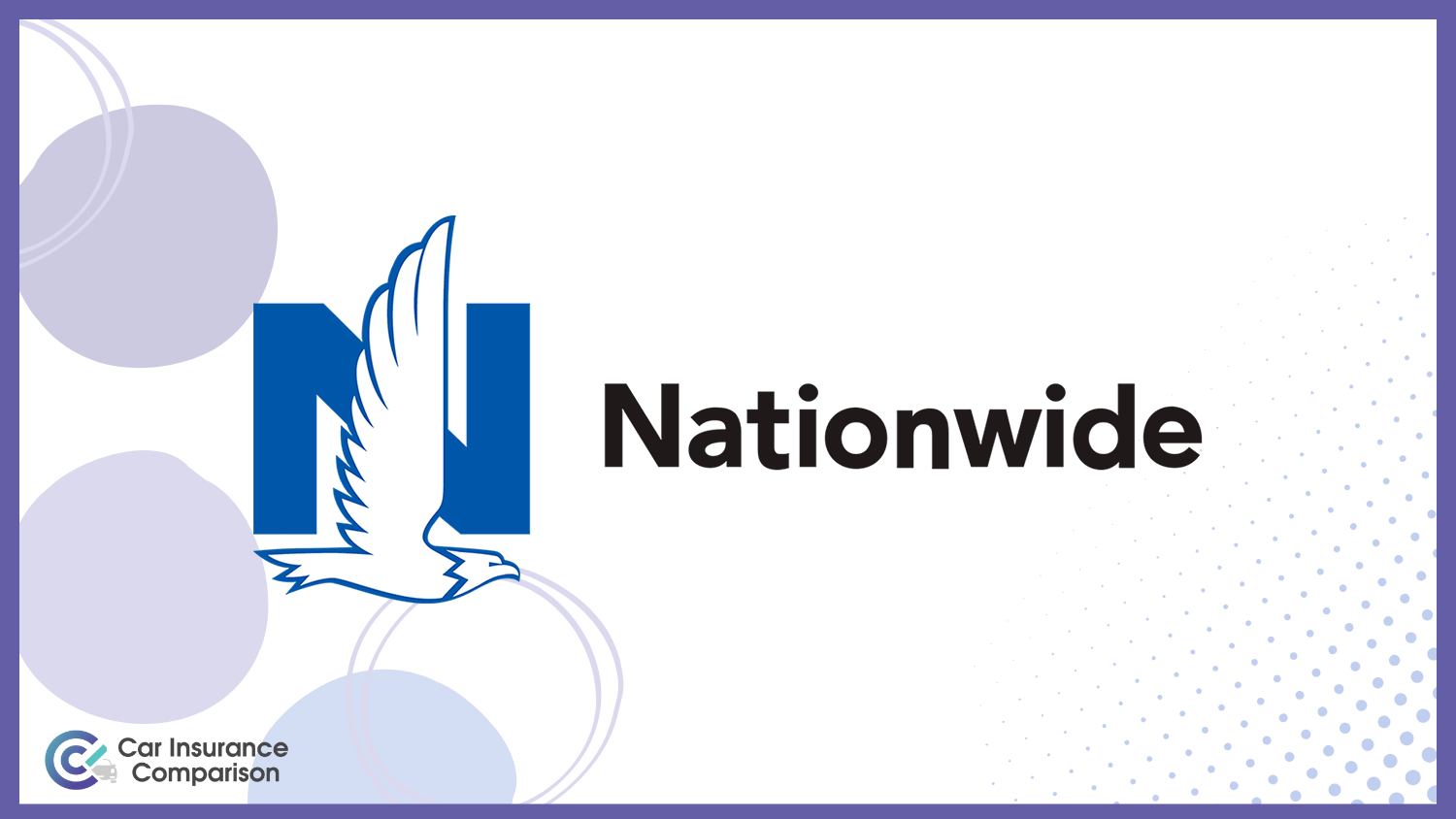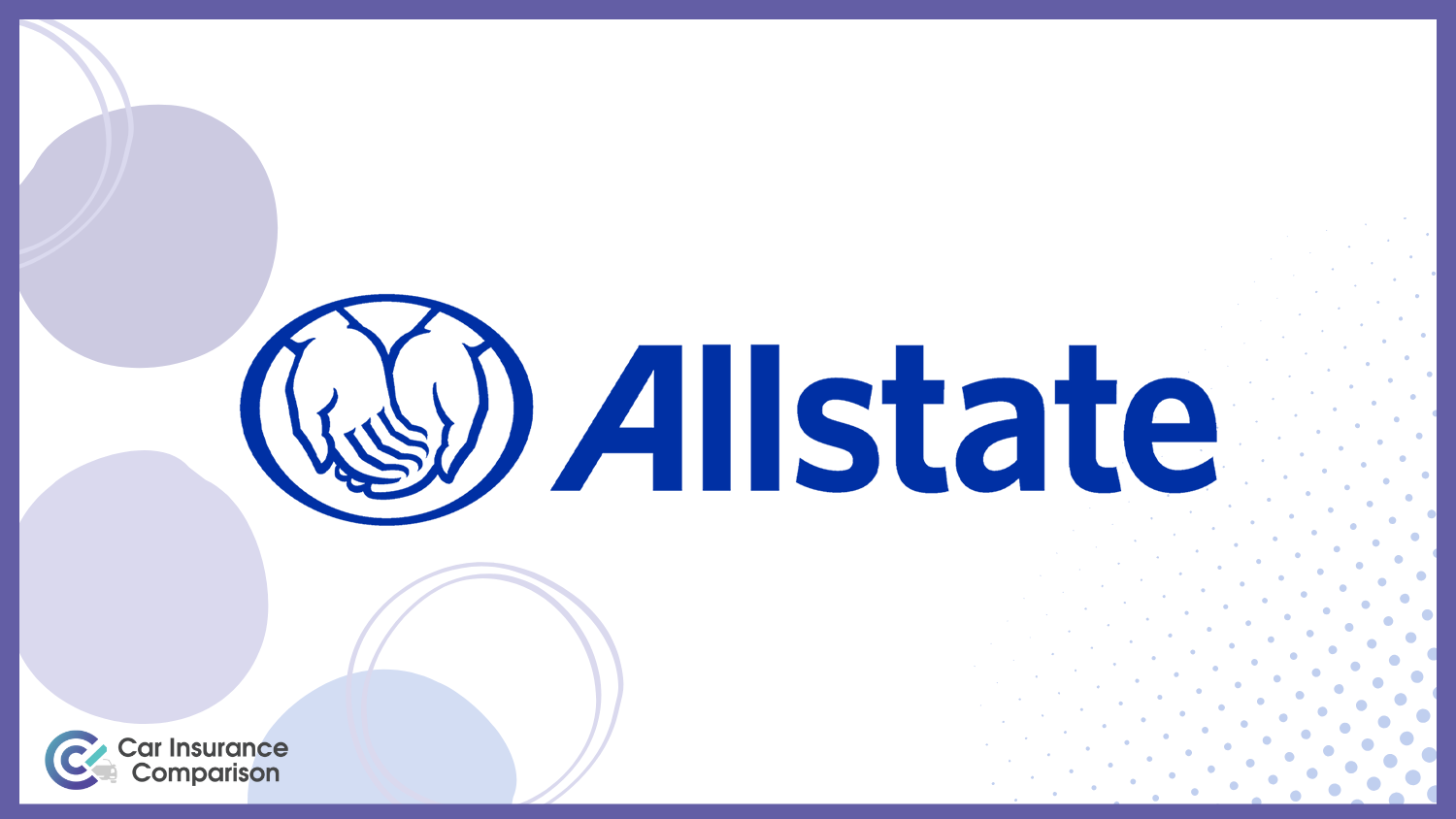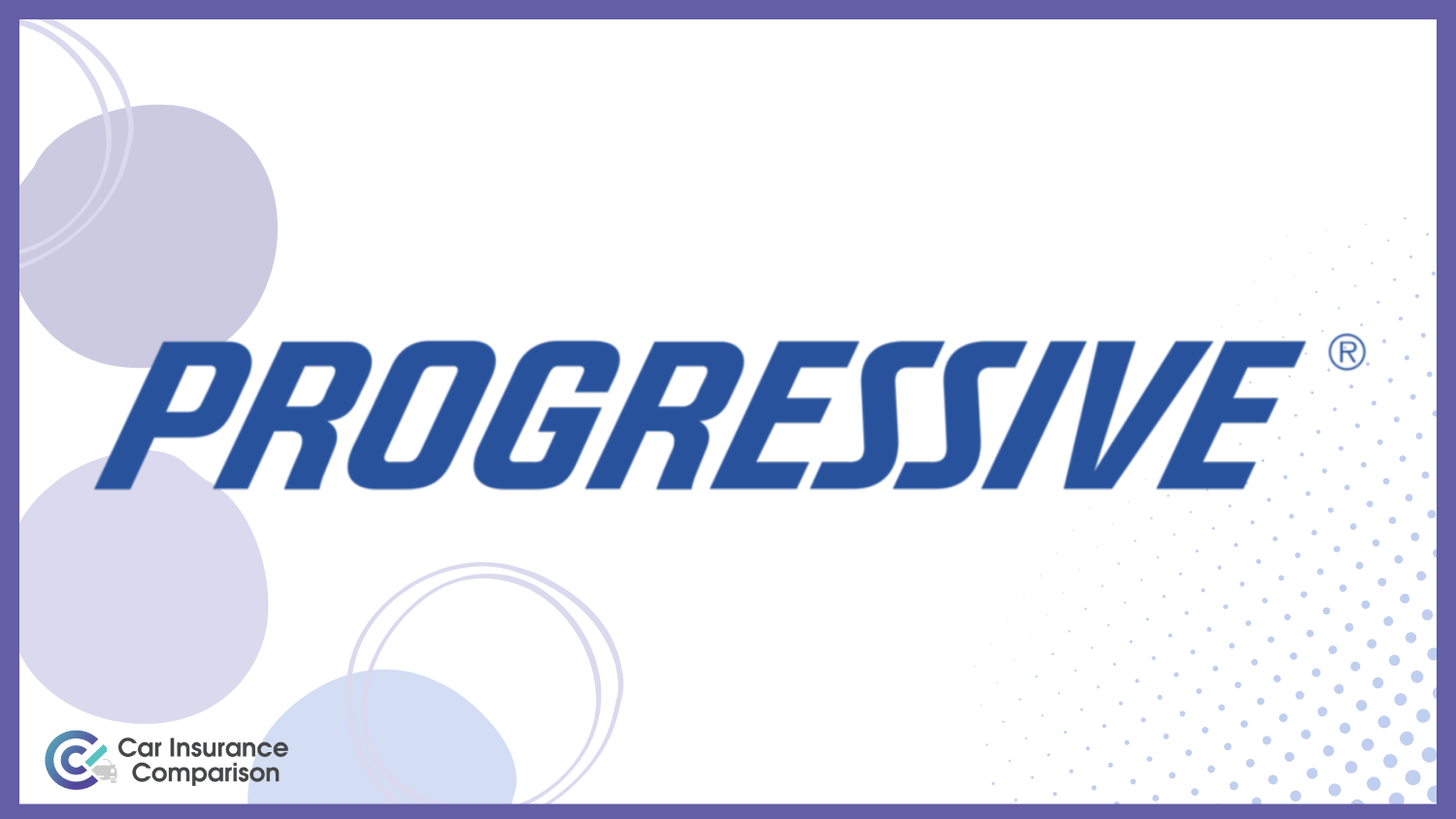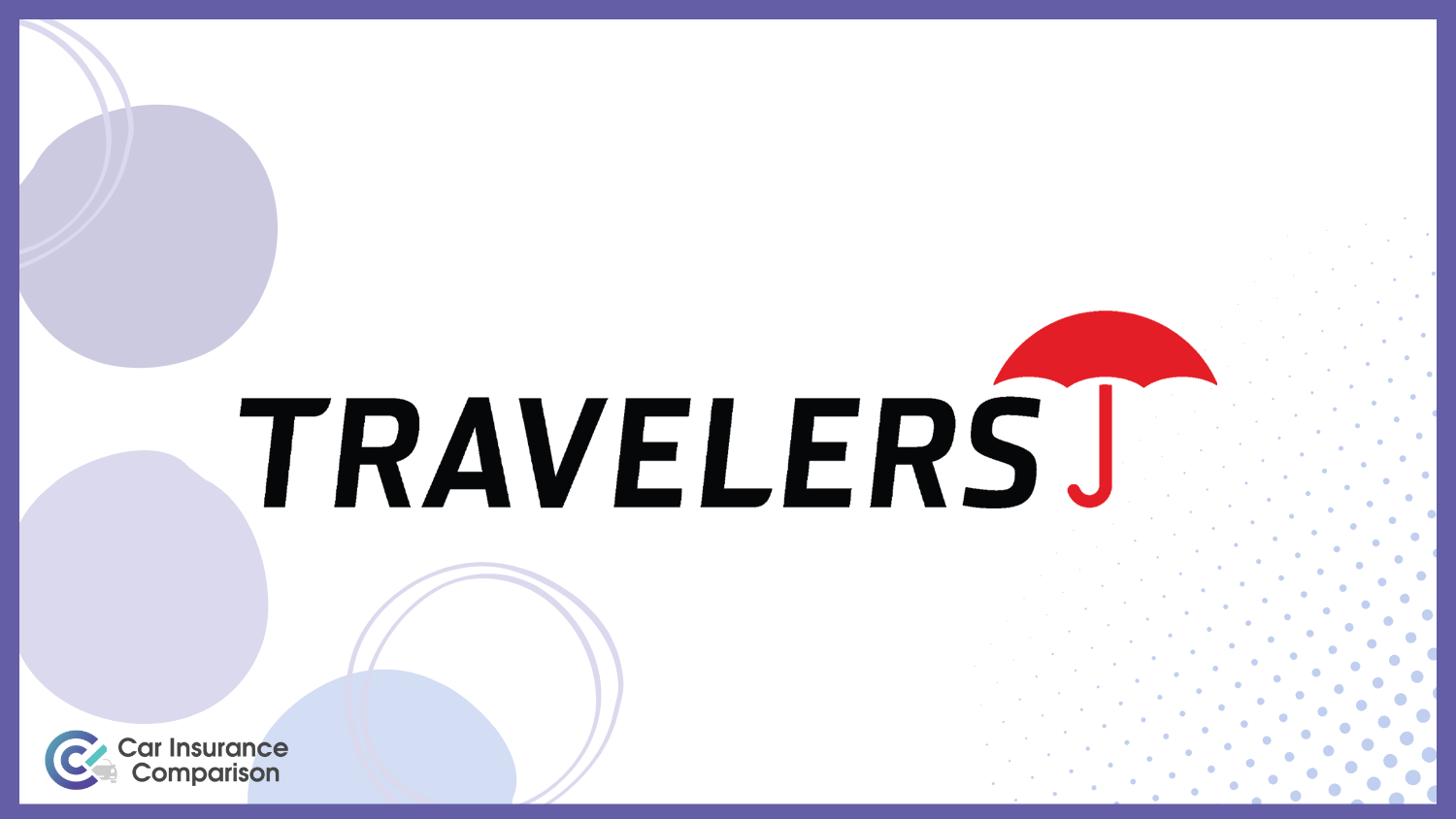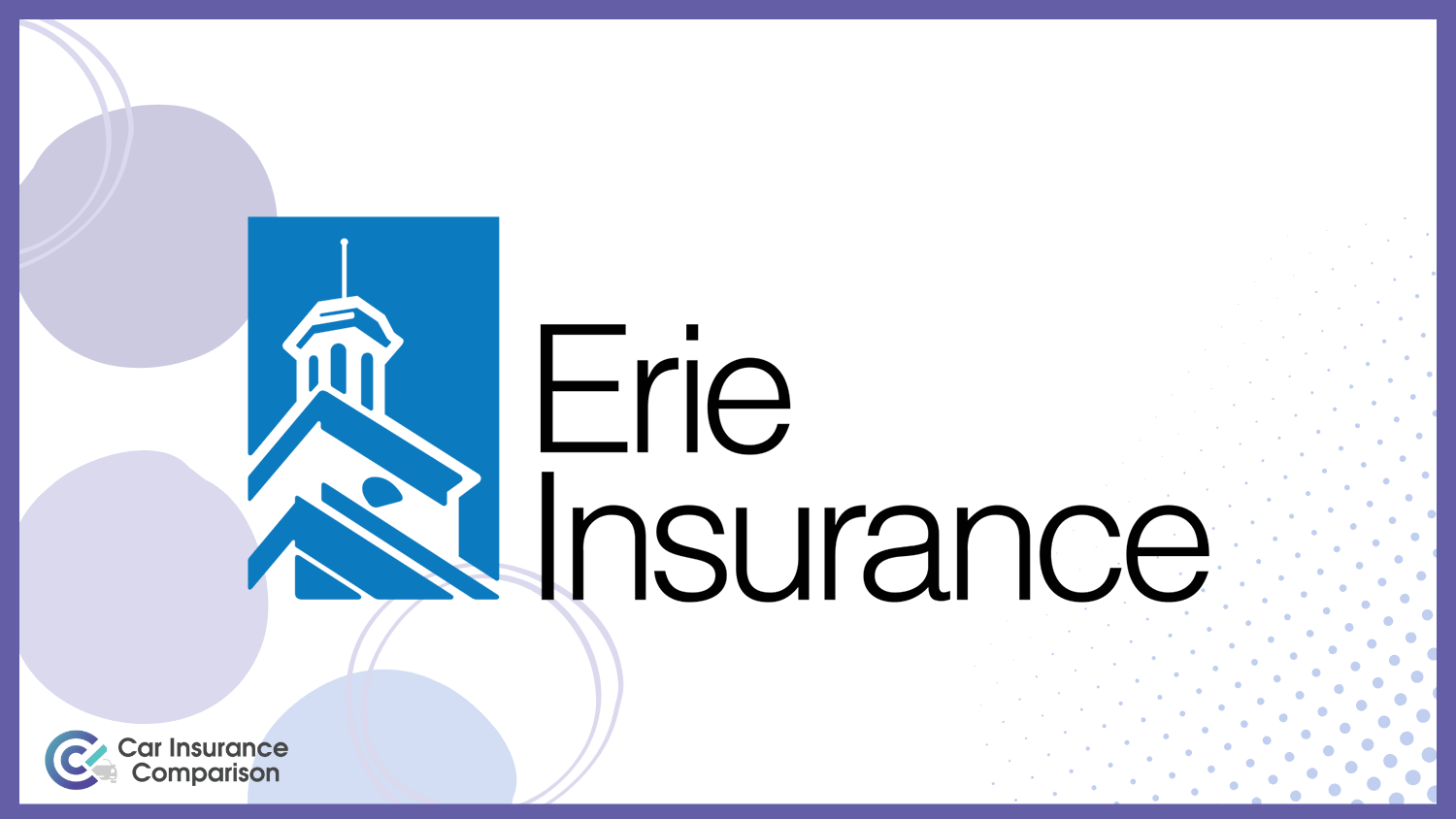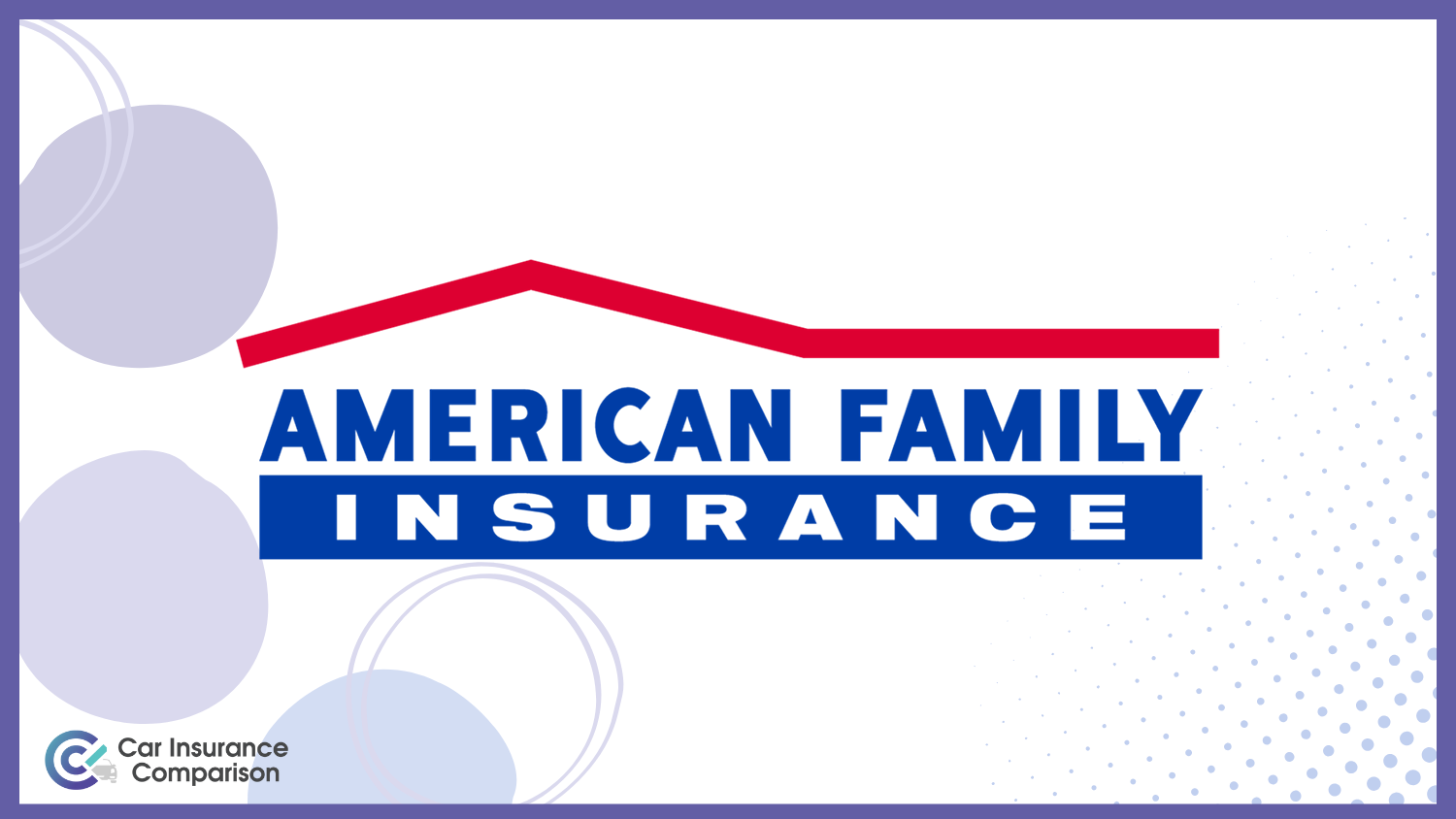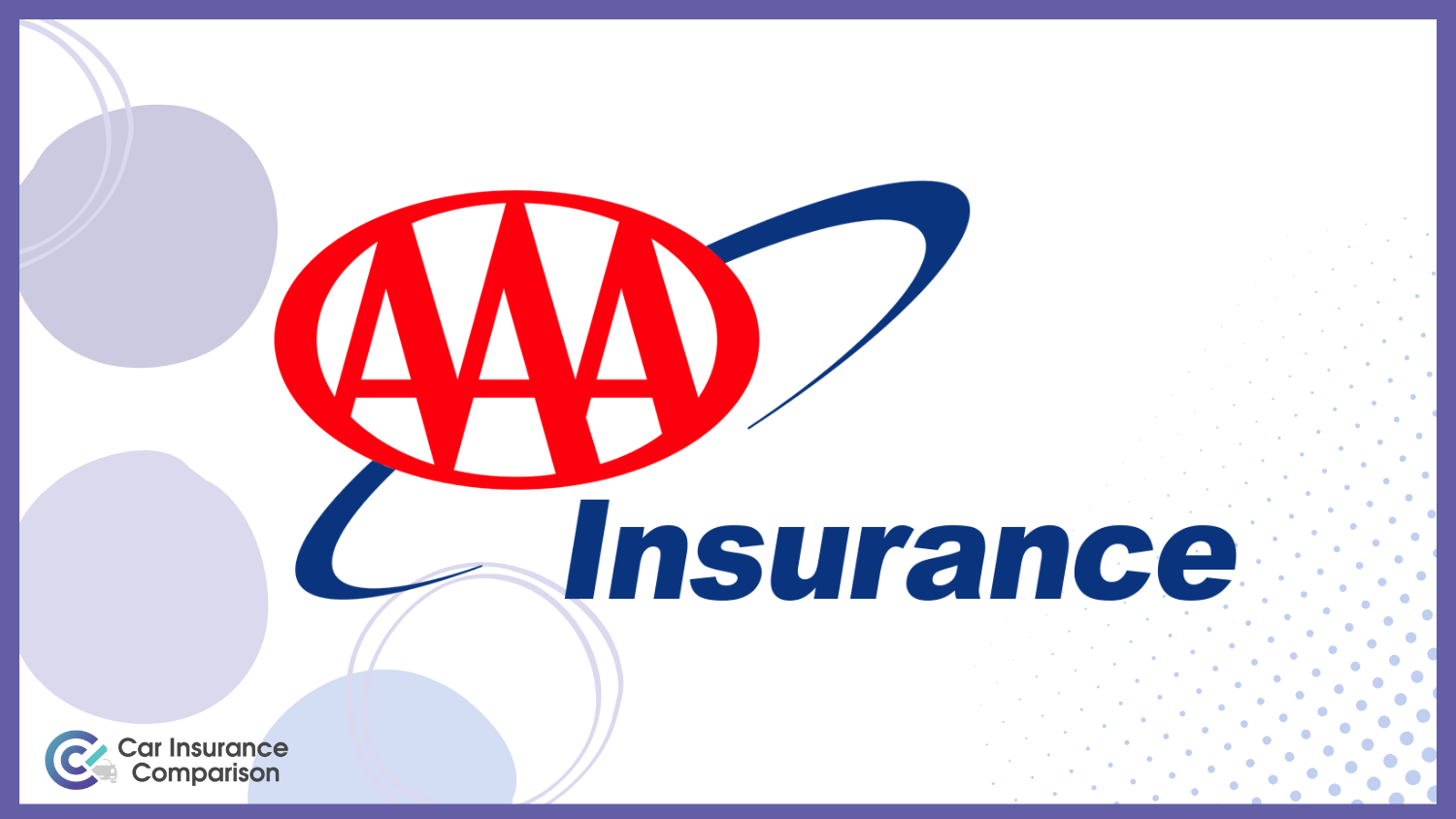Best Personal Injury Protection (PIP) Car Insurance in 2024 (Top 10 Companies)
The best personal injury protection car insurance comes from State Farm, Farmers, and Liberty Mutual. With rates starting at just $22 per month, adding PIP auto coverage to your policy is usually affordable. Representatives from these companies can help you determine if Medpay vs. PIP insurance is right for you.
Stop Paying Too Much For Car Insurance
Compare Free Quotes Online In Minutes, Check Now
Secured with SHA-256 Encryption
Brad Larson
Licensed Insurance Agent
Brad Larson has been in the insurance industry for over 16 years. He specializes in helping clients navigate the claims process, with a particular emphasis on coverage analysis. He received his bachelor’s degree from the University of Utah in Political Science. He also holds an Associate in Claims (AIC) and Associate in General Insurance (AINS) designations, as well as a Utah Property and Casual...
Licensed Insurance Agent
UPDATED: May 20, 2024
It’s all about you. We want to help you make the right coverage choices.
Advertiser Disclosure: We strive to help you make confident car insurance decisions. Comparison shopping should be easy. We are not affiliated with any one car insurance company and cannot guarantee quotes from any single company.
Our partnerships don’t influence our content. Our opinions are our own. To compare quotes from top car companies please enter your ZIP code above to use the free quote tool. The more quotes you compare, the more chances to save.
Editorial Guidelines: We are a free online resource for anyone interested in learning more about auto insurance. Our goal is to be an objective, third-party resource for everything auto insurance related. We update our site regularly, and all content is reviewed by auto insurance experts.
UPDATED: May 20, 2024
It’s all about you. We want to help you make the right coverage choices.
Advertiser Disclosure: We strive to help you make confident car insurance decisions. Comparison shopping should be easy. We are not affiliated with any one car insurance company and cannot guarantee quotes from any single company.
Our partnerships don’t influence our content. Our opinions are our own. To compare quotes from top car companies please enter your ZIP code above to use the free quote tool. The more quotes you compare, the more chances to save.
On This Page
A/B Active Test Data
Not visible on live sitesTest Name: ab_mda_paid_copy_1
Test Info: Starting when a user lands on one of our basic fire templates, we either leave the hero MDA heading & subheading as it is (control), or we replace it with copy we use on paid traffic (variant). This control/variant assignment will be passed along via experiment ID with any MDA submission after the user lands on a basic fire template.
Test Assignment: MDAPaidCopy1:variant
Control Heading: Free Car Insurance Comparison
Control Subheading: Compare Quotes From Top Companies and Save
Variant Heading: Stop Paying Too Much For Car Insurance
Variant Subheading: Compare Free Quotes Online In Minutes, Check Now
 17,754 reviews
17,754 reviewsCompany Facts
Full Coverage for Personal Injury Protection
A.M. Best Rating
Complaint Level
Pros & Cons
 17,754 reviews
17,754 reviews 2,903 reviews
2,903 reviewsCompany Facts
Full Coverage for Personal Injury Protection
A.M. Best Rating
Complaint Level
Pros & Cons
 2,903 reviews
2,903 reviews 3,606 reviews
3,606 reviewsCompany Facts
Full Coverage for Personal Injury Protection
A.M. Best Rating
Complaint Level
Pros & Cons
 3,606 reviews
3,606 reviewsState Farm, Farmers, and Liberty Mutual have the best personal injury protection car insurance.
State Farm takes our top spot for personal injury protection (PIP) insurance through its low rates, generous car insurance discounts, and additional coverage options.
| Company | Rank | PIP Discount | A.M. Best | Best For | Jump to Pros/Cons |
|---|---|---|---|---|---|
| #1 | 22% | A++ | Extensive Benefits | State Farm | |
| #2 | 18% | A | Flexible Options | Farmers | |
 | #3 | 13% | A | Quick Claims | Liberty Mutual |
 | #4 | 16% | A+ | Wide Network | Nationwide |
| #5 | 21% | A+ | Personalized Service | Allstate | |
| #6 | 16% | A+ | Comprehensive Coverage | Progressive | |
| #7 | 9% | A++ | Customer Support | Travelers | |
 | #8 | 20% | A+ | Local Presence | Erie |
| #9 | 11% | A | Deductible Options | American Family | |
 | #10 | 10% | A | Member Benefits | AAA |
Read on to learn more about companies that offer car insurance with multiple PIP claims positive reviews. Then, enter your ZIP code into our free comparison tool to see rates in your area.
- PIP insurance covers medical bills, lost income, and life expenses after a car accident
- 12 states require personal injury protection insurance
- State Farm and Farmers have the best PIP insurance coverage
#1 – State Farm: Top Pick Overall
Pros
- Drive Safe & Save: Drive Safe & Safe is State Farm’s usage-based insurance (UBI) program that tracks driving behaviors like speeding and hard braking. You can save up to 30% by enrolling.
- Extensive Network of Local Agents: Getting help from an agent is simple when you’re covered by State Farm as the company maintains a huge network of representatives.
- Customization Options: State Farm makes it easy to get more than the best PIP insurance. See all your coverage options in our State Farm car insurance review.
Cons
- Mixed Customer Reviews: State Farm may be our top pick for cheap PIP car insurance, but it’s not without faults. Many State Farm customers complain about the company’s service.
- Higher Rates for Some: State Farm is often one of the cheapest options for car insurance with PIP, but teens will probably find lower rates elsewhere.
Free Car Insurance Comparison
Enter your ZIP code below to view companies that have cheap car insurance rates.
Secured with SHA-256 Encryption
#2 – Farmers: Best Selection of Discounts
Pros
- Ample Discounts: Farmers has one of the best lists of discounts on the market, with a whopping 23 options. See how Farmers’ discounts can help you get the lowest PIP insurance quotes in our Farmers car insurance review.
- Add-on Options: Extend your coverage beyond PIP insurance with Farmers’s add-on options. Popular choices include customized coverage and rental car reimbursement.
- Excellent Financial Stability: Farmers has an A from A.M. Best, meaning you won’t have to worry about your PIP claims going unpaid.
Cons
- Lacking Coverage Options: Farmers offers several great coverage options, but it lacks a few popular choices like gap insurance.
- Rates Higher Than Average: Farmers is sometimes an option for cheap no-fault auto insurance, but most drivers see higher-than-average rates.
#3 – Liberty Mutual: Best for Auto Insurance for Teachers
Pros
- Teacher Discounts: Liberty Mutual offers a variety of discounts, but teachers can find the most savings with the Liberty Mutual educator discount. Learn more about teacher savings in our Liberty Mutual car insurance review.
- Ample Coverage Options: Liberty Mutual offers a great selection of add-ons besides cheap PIP auto insurance. Popular choices for Liberty Mutual drivers include original parts replacement and gap insurance.
- RightTrack: Save up to 30% on your insurance with Liberty Mutual’s UBI program, RightTrack.
Cons
- High Number of Complaints: Liberty Mutual offers low PIP costs, but the company has a higher-than-average number of customer complaints.
- Complex Claims: Many customers report that the Liberty Mutual claims process is over-complex and hard to understand.
#4 – Nationwide: Best for UBI Savings
Pros
- SmartRide: Nationwide offers an excellent discount opportunity of up to 40% off your insurance if you enroll in SmartRide and practice good driving habits.
- Solid Discounts: Aside from SmartRide, Nationwide offers 11 additional ways to save. Read through our Nationwide car insurance discount list to see how you can save.
- Affordable Rates: Nationwide usually offers affordable PIP car insurance quotes, especially to drivers with bad credit.
Cons
- Slow Claims Process: Many customers have been left unimpressed with the speed of Nationwide’s claims resolution process.
- Limited Agents: Nationwide doesn’t have the biggest network of agents, which can make finding personalized help difficult.
Free Car Insurance Comparison
Enter your ZIP code below to view companies that have cheap car insurance rates.
Secured with SHA-256 Encryption
#5 – Allstate: Best for Full Coverage Policies
Pros
- Coverage Options: Allstate offers plenty of ways to increase the insurance in your policy aside from PIP auto coverage. A few of your Allstate choices include extended vehicle care and roadside assistance.
- Savings Opportunities: It doesn’t have as many as some of its competitors, but Allstate has a respectable selection of 12 discounts to help you save.
- Huge Network of Agents: Allstate has one of the largest networks of agents on the market, meaning help from a real person is always within reach.
Cons
- Higher Rates: Allstate offers some of the best PIP car insurance, but it comes at a price. See how competitive Allstate’s rates are for you in our Allstate car insurance review.
- Mixed Reviews: Some drivers plan on being Allstate customers for life, but there are plenty of former Allstate customers who warn others to buy a policy with another company.
#6 – Progressive: Best for Convenient Online Tools
Pros
- Digital Tools: Progressive offers a variety of innovative digital tools for online policy management. Explore all of Progressive’s convenient online tools in our Progressive car insurance review.
- Snapshot: Snapshot is Progressive’s UBI discount option that allows drivers to save up to 30% for their good behavior.
- Loyalty Discounts: Progressive offers 13 discounts, including savings for being a loyal customer. The loyalty discount applies automatically after your first year with Progressive.
Cons
- Customer Service Quality: Many customers express concern about Progressive’s quality of customer service, particularly its communication.
- Claims Handling: Customers also frequently complain about Progressive’s claims handling process, saying the company had provided unsatisfactory settlements.
#7 – Travelers: Best for Customer Service
Pros
- Customer Service: Travelers consistently ranks highly for its customer service experience.
- Policy Options: Add more than just the best PIP auto insurance to your policy with Travelers’ excellent coverage options, like rental car coverage and accident forgiveness.
- IntelliDrive: Travelers’ UBI program IntelliDrive offers savings of up to 30%. See if IntelliDrive would be a good fit for you in our Travelers car insurance review.
Cons
- Limited Digital Tools: Travelers focuses more on agent interactions with customers, so it lacks some of the digital tools you can find at other companies.
- Rates can be high. Although Travelers sometimes has low prices for no-fault car insurance, many drivers will pay higher-than-average rates.
Free Car Insurance Comparison
Enter your ZIP code below to view companies that have cheap car insurance rates.
Secured with SHA-256 Encryption
#8 – Erie: Best for Filing Claims
Pros
- Excellent Claims Service: Erie is one of the best insurance companies that accept PIP claims because its claims resolution process is highly rated. See what more customers have to say in our Erie car insurance review.
- Low Rates: Erie is one of the cheapest options for car insurance, no matter what type of driver you are.
- Rate Lock: Erie’s Rate Lock feature locks your auto insurance rates in place, meaning they won’t increase while you’re an Erie customer if you don’t make any drastic changes to your policy.
Cons
- Limited Availability: Erie only sells insurance in 12 states and Washington, D.C.
- No Online Quotes: If you want to purchase Erie car insurance, you’ll need to speak with a representative. Erie does not offer online quotes.
#9 – American Family: Best for Costco Members
Pros
- Costco Policies: Through its subsidiary CONNECT, American Family writes and manages Costco’s car insurance policies.
- Affordability for High-Risk Drivers: Drivers with speeding tickets, at-fault accidents, and DUIs can find affordable car insurance with American Family.
- Valuable Coverage Options: Customize your policy with American Family’s excellent coverage options, including roadside assistance and gap insurance. See all your coverage options in our American Family car insurance review.
Cons
- Not Available Everywhere: American Family only sells insurance in 19 states.
- Limited Digital Experience: American Family doesn’t offer the most robust digital experience. If you’re looking for a modern insurance experience, American Family might not be the best choice.
#10 – AAA: Best for Roadside Assistance
Pros
- Roadside Assistance Plans: AAA is known for its roadside assistance plans, which come in three tiers so you can choose the perfect coverage.
- Low Complaints: Although complaint levels vary by region, most AAA clubs receive fewer complaints than the national average.
- Generous Discounts: AAA offers 17 discounts, including savings for things like having a college degree or being a safe driver.
Cons
- Membership Fees: Although AAA’s membership fees are low, they do increase the overall price of your car insurance.
- Higher Average Rates: Drivers with clean driving records may see higher average rates from AAA. Explore the average cost of AAA coverage in our AAA car insurance review.
Free Car Insurance Comparison
Enter your ZIP code below to view companies that have cheap car insurance rates.
Secured with SHA-256 Encryption
PIP Car Insurance Costs
So, how much is PIP insurance cost on average? Most drivers can get coverage for between $5 and $50 per month. Check below to see a third-party personal injury insurance comparison to see how much your insurance with PIP coverage might cost.
| Insurance Company | Clean Record | One Accident | One DUI |
|---|---|---|---|
| AAA | $86 | $133 | $148 |
| Allstate | $160 | $225 | $270 |
| American Family | $117 | $176 | $194 |
| Erie | $58 | $82 | $107 |
| Farmers | $139 | $198 | $193 |
| Liberty Mutual | $174 | $234 | $313 |
| Nationwide | $115 | $161 | $237 |
| Progressive | $105 | $186 | $140 |
| State Farm | $86 | $102 | $112 |
| Travelers | $99 | $139 | $206 |
Overall, your PIP insurance rates depend on the state you live in, your policy coverage limits, and the deductible you choose.
What is a PIP deductible? It is an amount you pay out of pocket before your insurer steps in to pay the rest, up to your policy limits.
PIP doesn’t always have a car insurance deductible. In fact, it’s unusual and is an option in some states. Deductibles typically range from $100 to $2,000. Lower deductibles lead to higher rates, and higher deductibles lead to lower monthly costs. But be mindful not to select a deductible that is too high.
To secure your cheapest possible PIP insurance quotes, compare rates online from multiple of the best car insurance companies.
Factors That Determine PIP Insurance Costs
The factors that determine the cost of PIP insurance are mostly the same factors that affect car insurance rates of any type:
- Your driving record
- Your age
- Your location
- Your deductible amount
The amount of coverage you require is also going to affect the price, as well as the number of vehicles you need to insure. All of this information will be considered when you fill out a quote request form from different companies.
One special factor that can affect the cost of PIP insurance in some states is lawsuits.
An excessive amount of PIP claims in Florida has caused car insurance companies to increase their rates, sometimes costing customers four times the amount they would have paid in early 2009.
In particular, it appears that attorneys for medical facilities are suing insurance companies for relatively low sums of money, but the process is costing the state a fortune in legal fees–a cost that they pass on to the consumer in the form of higher rates.
Understanding PIP Insurance
PIP insurance is required coverage in some states, optional in others, and completely unavailable in the rest of the country. What does PIP stand for? It is an acronym for personal injury protection.
What is personal injury protection? Essentially, it pays for necessary medical care and hospital bills resulting from a car accident, regardless of fault.
This separates it from your bodily injury liability car insurance coverage, which only pays for the other party’s medical costs in an accident you cause. Also known as no-fault insurance, PIP applies to your passengers and follows you if you’re in another car or are injured as a pedestrian or while cycling.
PIP coverage shares similarities with your health insurance and with another car insurance called medical payments (MedPay) coverage. However, PIP explicitly applies to injuries related to car accidents. Plus, it’s not as limited as MedPay coverage, which doesn’t apply to lost wages or necessary home services.
What PIP Insurance Covers
You are familiar with the PIP insurance meaning, now let’s talk about exactly what this insurance protects you from. So, what is PIP coverage? PIP insurance offers relatively comprehensive coverage for medical expenses after an accident. Some may think PIP coverage only covers a visit to the ER, but it covers much more.
Technically, what PIP insurance covers may vary from state to state.
For example, PIP insurance typically pays for the following:
- Medical Expenses: These expenses include surgeries, ambulance rides, hospital stays, X-rays, medication, dental and vision care, and prostheses.
- Rehabilitation Services: Injuries in an accident often take a long time to heal. Fortunately, your PIP insurance helps cover any physical therapy you might need.
- Funeral Expenses: PIP insurance covers funerals, cremations, and burials.
- Survivor’s Loss: If you die in an accident, your PIP coverage acts as life insurance and pays your dependents for lost wages.
- Lost Income: Injuries come with several types of expenses beyond the initial treatment. One that many people overlook is lost wages when you can’t immediately go back to work. PIP insurance helps cover a portion of your wages.
- Child Care: Raising children is difficult in good health — PIP insurance pays for childcare expenses after an accident if you struggle to keep up.
- Household Services: Like child care, PIP insurance can pay for landscaping, housecleaning, and other household chores when you can’t complete them.
You’ll need to check with a representative to see what your PIP insurance covers since state laws significantly impact your policy. For example, in some states, how much insurance you need for a new car often includes PIP insurance, but some states only require PIP insurance to cover 80% of your medical bills. That leaves you with the remaining 20%.
Free Car Insurance Comparison
Enter your ZIP code below to view companies that have cheap car insurance rates.
Secured with SHA-256 Encryption
PIP vs. Medical Payments
Some people confuse PIP insurance with medical payments or MedPay car insurance.
The two insurances are similar, but MedPay coverage is more limited than PIP insurance.
What is MedPay coverage? It helps with medical and hospital bills resulting from an accident, regardless of fault.
But what is PIP insurance? It also covers medical bills after an accident regardless of fault. But it may help with lost wages, ongoing rehabilitation services, funeral costs, and home or childcare services.
Deciding between savings or quality insurance? Treat yourself—Farmers customers can choose both. #FarmersInsurance pic.twitter.com/4wZbMSuuq1
— Farmers Insurance (@WeAreFarmers) April 16, 2024
So, is there ever a reason why you should invest in both PIP and MedPay insurance?
If your PIP limits are very low, adding MedPay may provide you with supplemental coverage to fill in any gaps.
But, typically, investing in both insurance types is redundant.
Plus, not every driver gets the option to choose both. In some states, like Virginia, MedPay is offered as an optional policy add-on, while PIP insurance is not available to drivers at all. Maine car insurance laws are the only ones requiring MedPay, but other states offer it as an optional policy add-on. If you live in a MedPay state, it’s still an excellent option to consider since it can help cover expensive medical bills.
Personal Injury Protection vs. Bodily Injury Insurance
There are 12 no-fault states in the U.S. requiring drivers to pay for their own injuries after an accident, meaning you can’t rely on another driver’s liability coverage. Only injuries that cross a tort threshold — or a monetary or verbal limit — are eligible for lawsuits.
Monetary thresholds in no-fault states specify an amount your medical bills must exceed before you can sue a driver. Verbal thresholds list specific injuries that qualify for lawsuits, including loss of bodily function, dismemberment, disfigurement, or death. Most states lower thresholds if the at-fault driver is under the influence of drugs or alcohol.
Kristen Gryglik Licensed Insurance Agent
Often, people refer to PIP coverage as no-fault car insurance because the 12 no-fault states require drivers to carry a minimum amount of it.
While no-fault insurance refers to PIP coverage, it’s not exclusive to no-fault states. So, drivers in several other states can purchase it even though it’s not required. On the other hand, bodily injury insurance only covers people you injure in an at-fault accident. It never covers your own medical bills. Although they’re similar, PIP vs. bodily injury liability protect different people.
Limits of PIP Insurance
The most important limitation of PIP insurance is that it will not cover property damage, only injury, and related expenses.
Personal injury protection insurance (PIP) is supposed to be used to supplement other parts of your auto policy including your state’s minimum coverage requirements. The other parts of your insurance policy may include:
- Property Damage liability
- Bodily injury liability coverage
- Comprehensive Car Insurance
- Collision Car Insurance
- Uninsured/Underinsured Motorist Car Insurance
To cover other damages, you would need to have collision or comprehensive insurance, or you would need to sue the at-fault driver for property damage.
Interestingly, in most no-fault states, you cannot sue the at-fault driver for injury-related expenses.
PIP insurance is limited to the dollar amount set in the coverage limit. Often the limit will be split, such as a $40,000 policy will cover $20,000 in medical expenses and $20,000 in other expenses, or $20,000 for the driver and $20,000 for other injured parties.
As with most insurance, PIP insurance will usually not be valid if you are doing something illegal when an accident occurs.
How to File a PIP Car Insurance Claim
You file PIP car insurance claims in your mobile app, online, or over the phone, just like a traditional claim. The coverage applies to any necessary medical treatments required immediately after an accident. So submit those forms for reimbursement to your insurance company.
Typically, unless specific laws are in place, you use your PIP coverage for payments before turning to your health insurance coverage.
Double-check the regional laws where you live and the procedure your insurance company follows to ensure your policy covers your medical costs.
As stated before, the amount your PIP insurance pays depends on state laws. For example, Florida car insurance laws state that PIP pays for 80% of medical expenses. For New York car insurance, PIP insurance maxes out at $50,000 per person. Other states split policy limits between direct medical fees and other related costs.
Although starting a PIP claim is similar to other types of insurance, it can be more complicated as time goes on. Therefore, it’s crucial to follow the instructions an insurance representative gives you — failing to do so could result in fines or claim denial.
How PIP Insurance Works With Other Types of Insurance
Knowing how your insurance works can be confusing, especially if you have multiple policy types. If you or a passenger get injured in an accident, learning how to file a car insurance claim is simple. Your PIP insurance is usually exhausted before other coverages kick in.
It depends on state law, but your PIP insurance typically covers your medical expenses first after a car accident, even if the other driver is at fault. Once your PIP coverage runs out, you can file a claim against the other driver’s liability policy.
Brandon Frady Licensed Insurance Agent
Due to the nature of medical bills after an accident, you don’t need to wait until your claim resolves before you file with another type of insurance. For example, your insurance company should allow you to file a PIP and collision insurance claim simultaneously.
Although PIP insurance gets used first, there are situations when you can skip filing a claim and sue the at-fault driver instead. For example, most states allow injured drivers to sue after a severe or permanently disabling injury.
Free Car Insurance Comparison
Enter your ZIP code below to view companies that have cheap car insurance rates.
Secured with SHA-256 Encryption
PIP and Health Insurance
PIP insurance pays for medical care, so do you need PIP if you have health insurance?
If you live in a state where PIP is legally required, you have to purchase whatever limits are mandated in your state, regardless of whether you have health insurance.
Otherwise, if it’s an optional add-on where you live, know that PIP coverage applies to some things not covered by your healthcare.
For example, PIP insurance pays for lost wages, funeral expenses, childcare services, and rehabilitation expenses in some states.
Some states allow health insurance and PIP coverage to work together after an accident. For example, New Jersey car insurance laws allow drivers to use health insurance for physical injuries and PIP for related expenses like lost income, allowing drivers to maximize their coverage without worrying about reaching their limits.
Other states that require PIP insurance will have their own specific laws, but an insurance representative will know how much coverage you need.
Specifically, New Jersey allows you to use your health insurance for medical payments and then turn to your PIP coverage for lost wages and other necessary home services.
States That Require PIP Insurance
You probably find yourself wondering, should I get PIP insurance? Are there any state requirements for having PIP?
Typically, PIP coverage is required in no-fault states. Therefore, it’s often referred to as no-fault insurance.
In no-fault states, your right to sue another driver is limited to certain tort thresholds. The threshold may be monetary or verbal.
Otherwise, after an accident, you rely on your own insurance policy to cover personal damages, regardless of fault.
So how does PIP relate to no-fault insurance? It provides all drivers with bodily injury protections, even in states where the right to pursue legal action against another driver is limited. Other states have optional no-fault laws. PIP coverage may be available in those states. There are also at-fault or full-tort car insurance states. Whoever caused the accident uses their insurance policy to cover damages for all parties involved.
Some tort states offer optional PIP insurance to drivers — in Texas and Washington, for example, insurance companies must offer all drivers PIP coverage, but drivers can waive it.
The table below shows the PIP insurance requirements in the states that legally mandate this coverage.
| State | Coverage Requirement |
|---|---|
| Arkansas | $5,000 per person |
| Delaware | $15,000 per person $30,000 per incident $5,000 for funeral expenses |
| Florida | $10,000 per person |
| Hawaii | $10,000 per person |
| Kansas | $4,500 per person in medical expenses $4,500 for rehab expenses $2,000 for funeral expenses $900 per month for disability and loss of income $25 per day for in-home costs |
| Kentucky | $10,000 per person, per accident |
| Maryland | 2500 per person |
| Massachusetts | $8,000 per person |
| Michigan | $250,000 per incident $50,000 for some qualifying Medicaid enrollees Opt-out option available for some Medicare recipients |
| Minnesota | $20,000 for medical expenses $20,000 for income loss |
| New Jersey | $15,000 per person Up to $250,000 for severe or permanent injury |
| New York | $50,000 per person $2,000 death benefit 80% lost income or up to $2,000 per month $25 per day for additional services |
| North Dakota | $30,000 per person |
| Oregon | $15,000 per person |
| Pennsylvania | $5,000 per incident in medical benefits coverage |
| South Dakota | No minimum coverage requirement |
| Texas | $2,500 per person |
| Utah | $3,000 per person $1,500 per person for funeral expenses $3,000 death benefit $250 per week or 85% of lost wages $20 per day for additional services |
| Virginia | $2,000 Up to $100 per week for lost wages for up to 12 months, in some cases |
| Washington | $10,000 per accident |
| Washington, D.C. | $50,000 per person $12,000 per person for lost wages $4,000 for funeral expenses |
The coverage is titled Medical Benefits in Pennsylvania, but it is the same as PIP insurance, just with a different name.
The table above shows the states where PIP is required, all of which are no-fault states.
But you can also optionally add PIP car insurance to your policy if you live in Arkansas, the District of Columbia, Kentucky, Maryland, New Hampshire, South Dakota, Texas, and Washington.
In other states, you do not have the option to buy PIP insurance at all.
PIP Insurance: The Bottom Line
PIP insurance covers medical costs, hospital bills, rehabilitation services, and other lost wages resulting from an accident. If you live in a state where PIP is legally required, you must add the mandatory PIP limits to your car insurance policy. Otherwise, if you live in a state where the insurance is optional, adding PIP coverage is ideal for people with limited health insurance or those who want more substantial bodily injury protection.
Now that you know how to compare multiple free online car insurance quotes, your next step should be locating your own PIP insurance quotes. Enter your ZIP code into our free comparison tool below to get started today.
Frequently Asked Questions
What is personal injury protection (PIP) car insurance?
Personal injury protection (PIP) car insurance is a type of coverage that helps pay for medical expenses and other related costs resulting from a car accident, regardless of who is at fault. PIP coverage is designed to provide swift and immediate access to medical treatment and support for injured parties.
What does PIP car insurance cover?
PIP car insurance typically covers the following expenses:
- Medical Expenses: This includes doctor’s visits, hospital bills, surgeries, medications, and rehabilitation services.
- Lost Wages: PIP can provide compensation for the income you lose while recovering from injuries sustained in a car accident.
- Funeral Expenses: PIP may cover funeral and burial expenses in the event of a fatal car accident.
- Additional Expenses: PIP can help cover expenses such as childcare, housekeeping, or transportation to medical appointments.
It doesn’t cover your car repairs or pay for injuries you cause to other people.
Is PIP car insurance required in all states?
No, PIP car insurance is not part of the minimum insurance required in every state. However, it is a mandatory coverage in some states known as “no-fault” states, where each driver’s insurance company pays for their respective policyholder’s medical expenses and other related costs, regardless of who caused the accident. However, PIP coverage is not mandatory in “at-fault” states, where the at-fault driver’s insurance is responsible for covering the expenses of the injured party.
Which are no-fault states?
The following 12 states are considered no-fault states: Arkansas, Delaware, Florida, Hawaii, Kansas, Kentucky, Maryland, Massachusetts, Michigan, Minnesota, New Jersey, and New York.
What are the advantages and disadvantages of being in no-fault states?
The advantages of no-fault states include faster reimbursement for medical expenses and the ability to receive compensation even in situations where fault is difficult to determine. However, a drawback is that the cost is not necessarily assigned to the responsible party, potentially resulting in higher premiums for both parties involved.
What are the benefits of having PIP car insurance?
Having PIP car insurance can provide several benefits, including:
- Prompt Medical Coverage: PIP ensures that you receive immediate medical treatment and support after a car accident, without having to wait for fault determinations or legal proceedings.
- Coverage for a Wide Range of Expenses: PIP not only covers medical expenses but also provides coverage for lost wages, funeral expenses, and other related costs, which can help alleviate financial burdens.
- Protection for You and Your Passengers: PIP coverage extends to all occupants of your vehicle, providing financial support for their medical expenses and other costs in the event of an accident. You only need to look at car accident statistics to see why PIP coverage is important.
- Reduced Legal Complexities: In no-fault states, PIP coverage helps streamline the claims process and reduces the need for legal action to recover expenses.
Hopefully, you never need to use your PIP insurance. If you do need it, though, you’ll be happy to have had the forethought of buying medical protection.
Can I have PIP coverage along with other types of car insurance?
Yes, in states where PIP coverage is mandatory, you are required to have it as part of your car insurance policy. You can also have additional insurance options for the best full coverage car insurance policy, such as liability coverage, collision coverage, comprehensive coverage, and uninsured/underinsured motorist coverage, alongside PIP coverage to provide comprehensive protection.
How does personal injury protection work with other types of insurance?
Personal injury protection (PIP) insurance usually covers your medical expenses first after an accident, regardless of fault. Once your PIP coverage is exhausted, you may be able to file a claim against the other driver’s liability policy. PIP insurance is primary in most cases, but the specific coordination with other types of insurance may vary depending on state laws.
Do you need personal injury protection if you have health insurance?
Having health insurance doesn’t necessarily eliminate the need for personal injury protection (PIP) coverage. In some states, PIP insurance is required to drive legally on public roads, and driving without insurance comes with serious consequences. Additionally, PIP insurance can cover expenses that health insurance may not, such as lost income, household services, or childcare services. It is advisable to consider PIP insurance even if you have health insurance to ensure comprehensive coverage after an accident.
How can I find cheap PIP insurance?
To find cheap PIP insurance, choose the right amount of coverage, maintain a clean driving record, and compare car insurance companies. The average cheap PIP insurance rate is $12 per month. However, you can enter your ZIP code into our free tool to see how much you might pay for PIP insurance today.
Free Car Insurance Comparison
Enter your ZIP code below to view companies that have cheap car insurance rates.
Secured with SHA-256 Encryption
Brad Larson
Licensed Insurance Agent
Brad Larson has been in the insurance industry for over 16 years. He specializes in helping clients navigate the claims process, with a particular emphasis on coverage analysis. He received his bachelor’s degree from the University of Utah in Political Science. He also holds an Associate in Claims (AIC) and Associate in General Insurance (AINS) designations, as well as a Utah Property and Casual...
Licensed Insurance Agent
Editorial Guidelines: We are a free online resource for anyone interested in learning more about auto insurance. Our goal is to be an objective, third-party resource for everything auto insurance related. We update our site regularly, and all content is reviewed by auto insurance experts.


